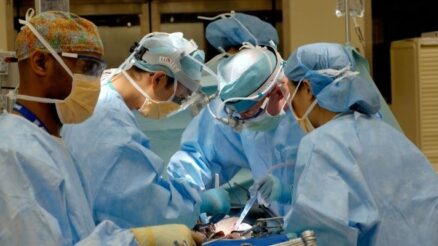An appendix is a small, tube-like piece of tissue located in the lower right area of the abdomen. It is connected to the large intestine and functions by producing mucus, which then flows into the large intestine.
An appendix becomes inflamed or infected when an obstruction occurs in the large intestine, leading to blockage and the possibility of infection. The exact cause is not known, but in certain instances, it may result from fecal matter entering the appendix, which is situated right close to the point where feces transition from liquid to solid, promoting multiplication of bacteria.
What are the significant signs and symptoms of appendicitis?
Not everyone experiences the same symptoms, the common signs of appendicitis include:
- Throbbing pain right in the middle of the abdomen.
- This pain that can radiate through the abdomen
- Pain while taking deep breaths, sneezing and coughing
- Loss of appetite
- Vomiting
- Fever with cold and chills
- Diarrhea
- Abdominal tenderness
- Pain while urinating
What might be possible causes of appendicitis?
Appendicitis is a result of blockage in the appendix. This blockage can lead to swelling and inflammation of the appendix. Once the appendix is infected and inflamed within a few hours the symptoms may develop and abdomen tenderness can be visible.
Appendicitis is caused due to various reasons like the stool entering the appendix or even due to infections of viral and bacteria ruling out one particular reason is not quite possible. As the appendix swells blood circulation gets restricted due to the blockage. Human body requires the right amount of blood in every organ to function properly.
When the appendix does not get enough blood it begins to decompose or die. When the appendix dies it can lead to the leakage of the blockage contents that may contain stool, blood, mucus, or pus. These contents may enter the bloodstream leading to sepsis in the body causing a condition called peritonitis.
Can appendicitis heal without any treatment?
Well, in few cases the immune system may be strong enough to isolate the infection just to the appendix area by creating a small pus pocket and at the end of the opening. This small pocket collects the blockage contents, if this happens then antibiotics are prescribed by the doctor and the condition gets resolved without the need of surgery. And the patient will be closely monitored.
Although this may not be the case in everyone, in the majority of the people the pus pocket does not form and leads to sepsis when not immediately treated. It is important to get medical help immediately, as delaying it can lead to the rupture of the appendix leading to sepsis and a condition called the peritonitis, which is a life-threatening condition.
When should you seek medical help?
As previously mentioned, when the appendix becomes inflamed the symptoms begin within a few hours. When you start to notice any signs it is important to seek medical help as soon as possible to avoid any complications.
After a few tests, when the doctor confirms appendicitis, a surgery called appendectomy to remove the affected appendix. As the appendix is a vestibular organ, removing the organ will not bring any change in the functioning of the body. Before undergoing the surgery speak to your doctor to understand the appendix operation cost in Coimbatore to make an informed decision.
What are the diagnostic procedures to identify appendicitis?
The first test to diagnose appendicitis is by physical examination. The doctor may press around the lower abdomen to see for any tenderness. As abdominal tenderness is the first sign of appendicitis.
Imaging tests like X-rays or scans may be performed to confirm the severity of appendicitis.
What happens if you don’t seek medical help?
When appendicitis occurs waiting for treatment can make the situation worse. Usually once symptoms begin they can worsen over time, but when you fail to seek help, after around five to six hours you may suddenly feel no pain. This is because the appendix may have ruptured exposing the debris into the bloodstream and other organs.
When the appendix ruptures the treatment can be much more difficult and the recovery can be long. In cases if the appendix ruptures, then appendectomy may not be performed as removing appendix after the rupture can be more fatal. Hence after draining, the patient will be in observation and after a few weeks or months appendix may be removed.
It is important to avoid the rupture of the appendix to get immediate treatment to avoid major complications and also to get complete recovery.
Who is at risk of developing appendicitis?
Appendicitis, which often necessitates surgery, is the primary reason for the onset of symptoms of appendicitis. While it can occur at any age, it primarily affects teenagers and young adults in their 20s. Individuals with a family history of appendicitis, particularly males, may have an increased risk. Additionally, children with cystic fibrosis appear to have a higher likelihood of developing appendicitis.
Important Takeaway:
Though there are instances when an inflamed appendix might resolve spontaneously, it is crucial not to gamble with your well-being. If you suspect appendicitis, it is advisable to seek guidance from a doctor to receive accurate diagnosis and suitable treatment. Keep in mind that early intervention can prevent complications and promote a swift recovery. Visit the best laparoscopic surgeon in Coimbatore in case you are looking to consider appendix surgery.





